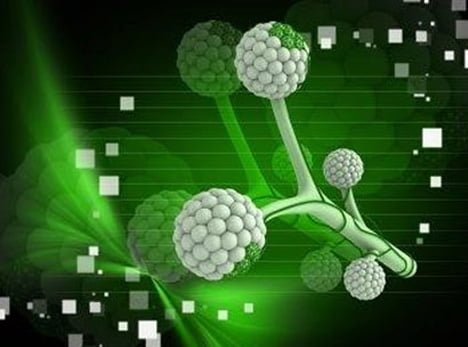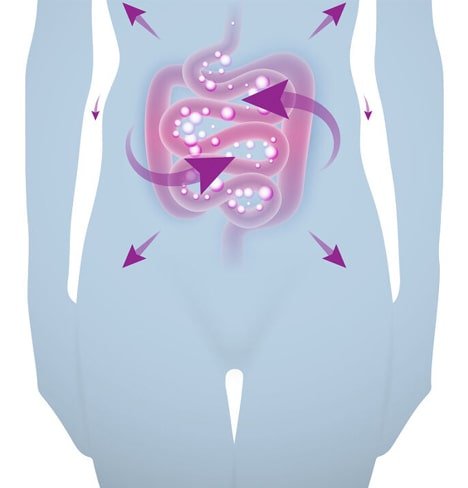Bloating is a condition in which your digestive tract becomes overloaded with gas. It commonly develops as a result of the foods and beverages you consume. But if your bloating is persistent, see a GI doctor for a thorough examination. Our Manhattan Gastroenterology practice in New York City provides a huge variety of diagnosing tests and treatment options for those suffering from gastrointestinal problems. Contact us today to get the desired relief.
What are Gas and Bloating?
You always have some intestinal gas within your digestive tract. Gas in your digestive tract (the esophagus, stomach, small intestine, and large intestine) is produced by two sources: ingested air and the normal breakdown of certain undigested foods by harmless bacteria present in the large intestine.
Gas and bloating symptoms are common in conjunction with other symptoms and can be difficult to identify as the cause. Patients should undergo a thorough consultation and examination by the best specialist for an accurate diagnosis and treatment plan to exclude any underlying serious medical issues. Your gastroenterologist would most likely need to do an evaluation to rule out other possible causes of your symptoms.
What Causes Bloating and Gas?

Air swallowing (aerophagia) is a common cause of stomach gas. When eating and drinking, everyone swallows small amounts of air. However, some people may take in more air if they are eating or drinking quickly, talking while eating, chewing gum, smoking, or wearing loose dentures. Most swallowed air is expelled from the stomach by burping or belching. The remaining gas enters the small intestine and is partially absorbed.
A small amount that reaches the large intestine is released through the rectum and expelled as flatulence. Excess gas, either trapped in your intestines or passed as flatulence, can be very uncomfortable. Stuck gas can cause abdominal pain and bloating. In truth, everyone passes gas several times a day. Even stuck gas is a normal part of the digestive process.
Read more: What Makes My Farts So Smelly?
When naturally occurring bacteria in the large intestine or colon digest certain food materials, gases or trapped gas are produced as a by-product. These bacteria are in charge of digesting complex carbohydrates (sugar, starches, and fiber found in many foods) and cellulose, which are generally not digested in the upper gastrointestinal tract. The quantity and mixture of gases depend on the types of bacteria in the colon.
Everyone has a unique assortment of bacteria from the time of birth. Hydrogen, carbon dioxide, and methane are examples of these gases. The odor is caused by trace gases such as hydrogen sulfide.
Risk Factors for Gas and Bloating
According to a population-based study published on PubMed, women report more bloating and have a higher risk of visible distention than men. Race, current smoking or alcohol use, prior abdominal surgery, and the number of births all had no significant association with bloating. The most significant risk factors for flatulence and bloating are excessive air swallowing, and certain foods and carbonated beverages.
”
★ ★ ★ ★ ★The entire staff was welcoming and made the visit quick and seamless. The office is clean, and the team even makes a point in offering coffee or water while you wait. The doctor was very friendly and to the point. Highly recommend choosing this office.
Symptoms and Other Causes of Gas and Bloating

The most common symptoms of gas are belching, flatulence, bloating, and abdominal pain. The sensation of abdominal bloating can be a symptom of gas alone. Still, it can also be a symptom of several severe conditions such as cancer, diverticulitis, and many other causes of abdominal pain in general, all of which should be taken seriously. Patients with these symptoms should be evaluated with a thorough consultation and examination by a GI doctor for an accurate diagnosis and treatment plan to exclude any underlying serious medical issues.
Patients with irritable bowel syndrome (IBS) can begin to experience bloating, abdominal pain, and motility changes to specific food components. GI doctors agree that it may be due to the IBS condition itself, which can cause a difference in the gut microflora, potential small intestinal bacterial overgrowth (SIBO), and visceral hypersensitivity. Visceral hypersensitivity is the term doctors use to describe an experience of pain within the inner organs at a more intense level than usual. This indicates that symptoms may occur as a result of a more intense than normal response to an average amount of gas.
Celiac disease gluten-sensitive enteropathy) is a digestive and autoimmune disorder that damages the small intestine lining when you eat gluten-containing foods. The condition can cause many gastrointestinal symptoms, including abdominal bloating, painful gas, diarrhea, and weight loss. Non-celiac gluten intolerance may also play a role in patients with IBS. Recent evidence shows that specific food components can contribute to symptoms through the malabsorption of carbohydrates. Identifying dietary components that may not be fully absorbed, may help minimize these symptoms.
Additionally, identifying and treating patients with risk factors and symptoms of small intestinal bacterial overgrowth (SIBO) can help with bloating symptoms. Small intestinal bacterial overgrowth (SIBO) is a disorder of excessive bacterial growth in the small intestine.
Diagnosing Gas and Bloating
During your office visit, one of our GI doctors will perform a physical exam, review your medical history, and discuss any recent dietary changes. Because gas and bloating can be symptoms of a more serious condition, one of our endoscopy doctors or your local GI specialist may order laboratory tests, stool tests, imaging, endoscopy or colonoscopy, or other forms of testing to rule out any other underlying condition. You should always consult your doctor if your gas and bloating persist or are accompanied by other symptoms such as diarrhea, bloody stools, vomiting, constipation, heartburn, or unexplained weight loss, as these can be indicators of a serious condition such as cancer.
Many gastrointestinal disorders exhibit similar symptoms. Once more serious causes are ruled out, your doctor may focus on your diet as this may be contributing to your symptoms. Fortunately, hydrogen breath tests are now available to uncover the cause of certain gastrointestinal disorders and malabsorption. Certain sugars may cause symptoms such as gas or bloating if they are not adequately absorbed. Hydrogen breath tests can be used to diagnose small intestinal bacterial overgrowth (SIBO).
The conditions listed above are caused by your body’s inability to absorb carbohydrates or by a condition that promotes abnormal bacterial growth in your small intestine.
In some people, all three of the aforementioned conditions can cause gas and bloating, cramping, diarrhea, and even nausea or vomiting. These symptoms are not dangerous in and of themselves, but they can make daily life unpleasant. Because the symptoms of these disorders are similar to those of many other medical conditions, diagnosing them can be difficult. The hydrogen breath test helps our GI doctors in making a more accurate diagnosis.
How to Get Rid of Gas and Bloating?
The treatment of gas and bloating is dependent on your gastroenterologist’s accurate diagnosis. Following a diagnosis, one of our gastroenterologists can create a treatment plan catered to your specific situation.
Preventing Gas and Bloating
You can prevent and avoid gas and bloating by making certain lifestyle changes, such as:
- Avoid common gas-causing foods, including cabbage, onions, turnips, beans, and peas
- Cut down on carbonated drinks and chewing gum
- Avoid drinking through a straw
- Take your time when eating or drinking to avoid swallowing excess air
- Increase your fiber intake to prevent constipation
- Check whether your dentures cause excessive swallowing of air
- Reduce your intake of dairy foods if they result in an upset stomach or gassiness
- Limit the amount of foods that contain synthetic sugar substitutes like sorbitol and monosaccharides
Understanding the source of bloating will help you avoid it in the long run. Seek medical attention from an experienced gastroenterologist if your bloating is accompanied by chronic constipation, IBS, or delayed gastric emptying.
Complications of Gas and Bloating
Gas and bloating are not life-threatening symptoms and are a normal part of the digestive process. However, sometimes excess gas production might be a sign of a severe GI condition. It is important to discuss your symptoms with a specialist to rule out any concerning underlying cause.
Important Reminder: The only intent of this information is to provide guidance, not definitive medical advice. Please consult a doctor about your specific condition. Only trained GI doctors like our specialists can determine an accurate diagnosis and proper treatment.
As best-in-class NYC gastroenterologists, our doctors provide highly personalized and comprehensive care. For more information about our gastroenterology services or to schedule an appointment with one of our GI doctors, please contact our Manhattan Gastroenterology practice in Union Square/Chelsea, Upper East Side, or Midtown NYC offices.

